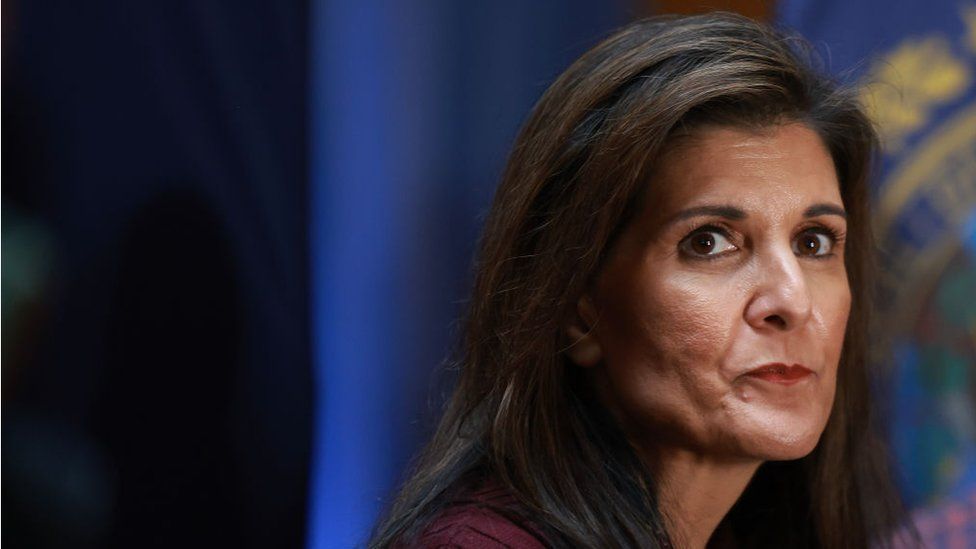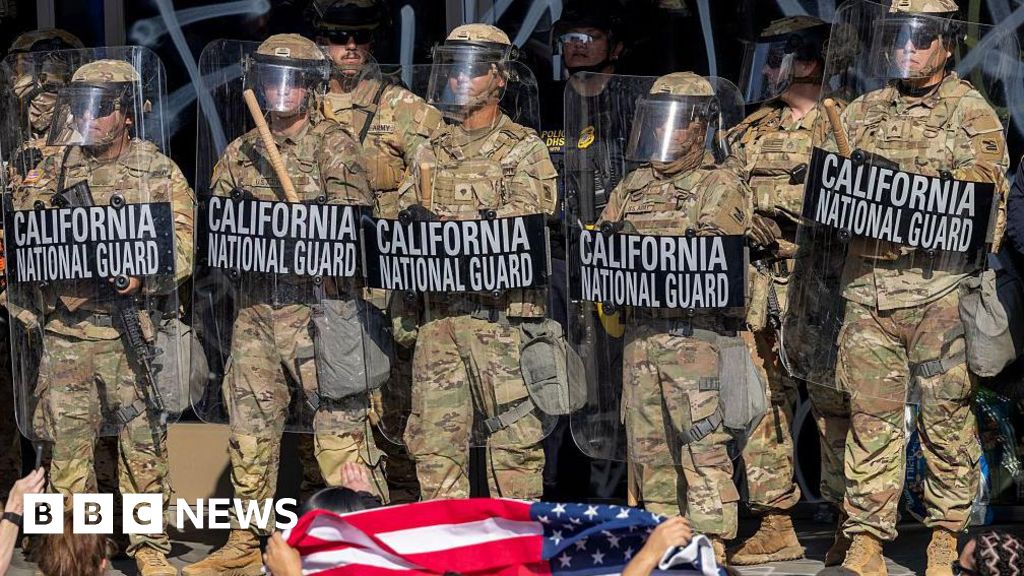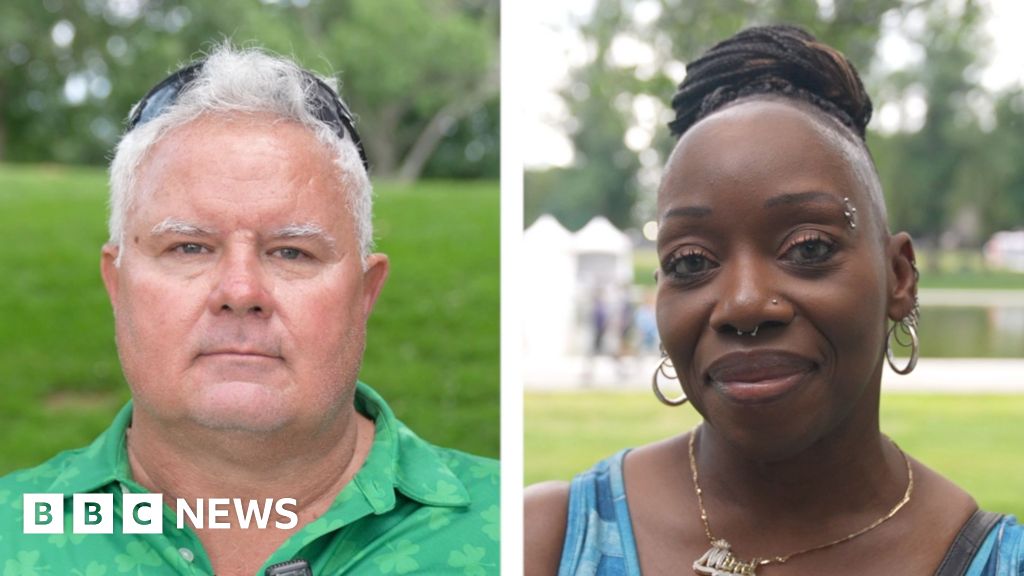ARTICLE AD BOX
 Image source, Getty Images
Image source, Getty Images
Nikki Haley is hoping to upset Donald Trump on Tuesday in New Hampshire.
By Madeline Halpert
BBC News
All eyes are on New Hampshire as Republican presidential candidates make their last-minute pitches across the state before voters cast their ballots on 23 January.
The second in a series of state-by-state contests will serve as another test for Donald Trump, Nikki Haley and Ron DeSantis as they fight for their party's presidential nomination.
That prize will pit them against the Democratic choice in November, almost certainly President Joe Biden.
The election comes a week after Mr Trump enjoyed a landslide win in Iowa, but he may find stiffer competition in this second round of voting. Ms Haley, for one, fancies her chances in New Hampshire.
Here's what to know about the contests.
When is the primary?
Primary elections for both Republicans and Democrats will take place on Tuesday.
Voters in the New Hampshire primary will cast their ballots privately at different polling locations over the course of the day, much like other elections.
What time voting begins at those locations is up to the town and city governments in New Hampshire.
By law, doors must open by 11:00 EST (16:00 GMT) and can only close after at least eight hours.
While that's the official rule, most locations in the state will open by 6:00 or 7:00 local time before closing around 19:00.
Some are opening even earlier, however. Dixville Notch, a village of four people, plans to open its polls at midnight - continuing its long-time tradition of being the first voters in the state to cast their ballots.
Who might win?
Image source, Getty Images
Image caption,Large crowds have braved freezing conditions to gather at rallies for Donald Trump in New Hampshire.
After Mr Trump steamrolled his opponents in Iowa, experts predict he will likely enjoy another victory thanks to Granite State voters.
"Let's be clear, his brand is winning," said Matthew Bartlett, a Republican strategist in the state.
Recent polling suggests Mr Trump still holds a substantial lead over Ms Haley, his closest rival in the contest. The former president's New Hampshire rallies have seen hundreds of voters line up in freezing conditions to hear him speak.
Ms Haley, a former United Nations ambassador, has focused her campaign efforts on New Hampshire, making dozens of stops in diners, local shops and other small-town spots.
She has said that New Hampshire will "correct" Iowa's vote - a claim her opponents have used in attack ads. A former South Carolina governor, she added she hopes her state then "brings it home" with its upcoming primary on 24 February.
Time will tell whether that strategy works. Her third-place finish in Iowa behind Mr Trump and Florida Governor Ron DeSantis may have stalled her momentum.
Why is New Hampshire different?
The New Hampshire primary offers a chance for Ms Haley to cut into Mr Trump's big lead.
A win in this contest would also demonstrate she has broad appeal and could gain enough support to lead Republicans to victory in the 2024 general election.
The state's distinct bloc of independent voters - who represent nearly 40% of its electorate - has led to electoral surprises in the past.
"That spirit - that 'live free or die', our motto - lives on in the mentality of the voters here," said Mr Bartlett. "They don't like to be told what to do."
Candidates will be working to win over these more moderate New Hampshire independents, who can choose to vote in the Republican primary.
Ultimately, the three Republican rivals are fighting for the 22 delegates at stake in New Hampshire, which will be awarded proportionally among the top candidates.
To come out on top at the Republican National Convention in July, a Republican candidate must secure 1,215 total delegates out of the 2,429 available across the primary contests.
What about Ron DeSantis?
Image source, Getty Images
Image caption,Ron DeSantis is polling in the single digits in New Hampshire, which has caused his campaign to shift its focus.
Mr DeSantis, who spent most of his campaign funds and time in Iowa, is polling in the single digits in New Hampshire.
His campaign has struggled because the Florida governor has "extreme difficulty connecting with voters", according to Sean Westwood, a professor of government at Dartmouth College, a prestigious school in New Hampshire.
"It's challenging for someone who goes to a DeSantis event to come away energised and excited," he said.
Facing poor polling, the DeSantis campaign has stripped back its New Hampshire presence in recent weeks. Instead, it has shifted its focus to South Carolina, where voters are often more conservative.
Democrats will hold a primary too
This year looks a bit different for Democrats in New Hampshire, due to a dispute between state party officials and the Democratic National Party.
Because the party claims state officials violated rules by scheduling the primary for earlier than allowed, zero delegates will be awarded.
As a result of the dispute, Mr Biden, the incumbent and frontrunner candidate, decided not to participate. He had asked to push New Hampshire from its prime early spot and bump up the primary in South Carolina.
With the president out of the race and no official delegates on the line, the primary will be decidedly less consequential for Democratic candidates - though it will still be interesting.
The president's New Hampshire allies have launched a write-in effort for him, and it will measure support for his two longshot challengers - Marianne Williamson and Dean Phillips - who have spent much of their time campaigning in the state.

 1 year ago
108
1 year ago
108








 English (US) ·
English (US) ·